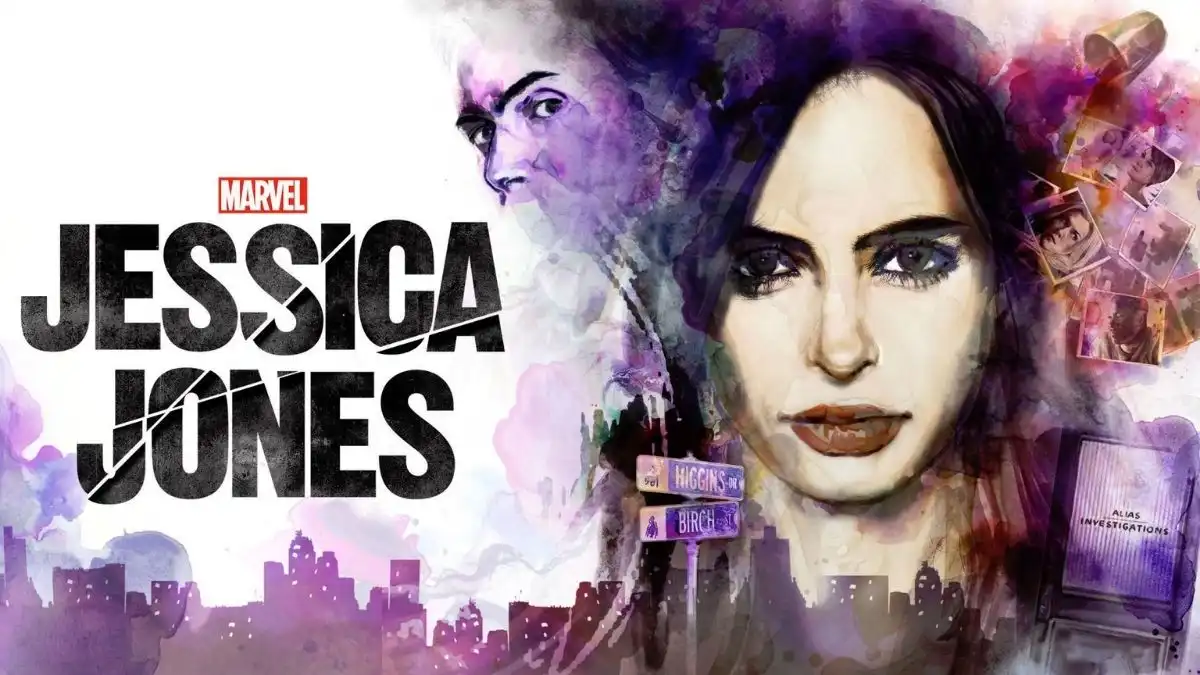Jessica Jones: Lessons in writing compelling female characters
A revisit on the Netflix adaptation of Marvel Comics superhero Jessica Jones, as the lead of the series, Krysten Ritter, turns 40.
Dec 22, 2021

Jessica Jones, the TV series was a surprise hit when it was released on Netflix in 2015. It was a follow up to the universally acclaimed Daredevil series that was released a few months prior. While Daredevil is one of the most popular comic book characters, especially after Frank Miller’s run in the 80s, Jessica Jones was never a mainstream character, only familiar to the most ardent of Marvel fans. The Marvel and Netflix writers had an uphill task to find the right balance in creating a compelling story with relatable characters. But the showrunners did one better and delivered on a riveting first season that explored several contemporary themes such as trauma, mental health, drug abuse, mental and sexual abuse.
To better analyse its themes, a close reading of its three primary female characters, Jessica Jones (Krysten Ritter), Trish Walker (Rachael Taylor), Jeri Hogarth (Carrie Ann-Moss), and the primary villain of season one, Kilgrave (David Tennant) is required. These characters have been given thoroughly fleshed out arcs that aid the narrative in producing a compelling story that will grip, haunt, and move the audience in equal measure. The most interesting aspect of Jessica Jones is the fact that it is far from a conventional superhero show. In fact, the moments when Jessica does use her powers are few and far between. The show is in fact a character study that deep dives into the aforementioned themes through these characters.
Carrie-Ann Moss’s turn as the manipulative lawyer Jeri Hoggarth is a far cry from her most popular role as Trinity in The Matrix franchise. Through her character, the writers explore themes that discuss the taboo surrounding homosexuality, and how women of power are often underestimated and underappreciated. Jeri’s character evolution throughout the series and in Iron Fist, highlight the sacrifices she had made and the morally grey choices she was forced to make in order to preserve her own well being.
The character Trish Walker on the other hand symbolises Harvey Dent’s famous quote from The Dark Knight “You either die a hero, or you live long enough to see yourself become the villain”. While she may not have fully transitioned to the superhero Hellcat like in the comics in its truest sense, her brief stint as a hero quickly faded away. However, her character’s primary arc is how she struggled in the entertainment industry with her controlling and abusive mother as her agent. Her bond with Jessica and her earnestness to help Jessica fight crime is her character overcompensating for the lack of free will which she endured for the vast majority of her lifetime.
Free will is the central theme of the series and the narrative questions its viewers to answer philosophically challenging questions. The most significant being, whether a person should be held accountable if their actions against their own free will cause harm or distress to others. In the series, Jessica, under the control of David Tennant’s Kilgrave is forced to commit murder. Kilgrave’s superpower of mind control is a metaphor for controlling and abusive partners in a toxic relationship. The writers have gone to great lengths to portray how even a person with superhuman abilities is unable to break free from the mental prison she had been put in. In fact, Erin Moriarty’s (Starlight in The Boys) character, Hope Schlottman, is the most tragic victim of Kilgrave’s manipulation. Under Kilgrave’s control, she kills her own parents and finally takes her own life to stop Kilgrave from having power over her.
The series also delves into alcoholism, PTSD, sexual and drug abuse. While the second and third seasons may have dipped in quality, the first season remains one of the most well-written female-centric TV shows ever made. David Tennant's portrayal of Kilgrave is one that is possibly one of the best villains ever written and performed for film and television. Whether Kevin Feige will bring Jessica back to the MCU remains to be seen.
Share